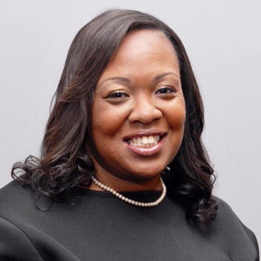
By Dawn Scotland
Sojourner’s Truth Reporter
Nan Whaley, the current mayor of Dayton and Ohio gubernatorial candidate, held a virtual roundtable on the topic of “Racial Disparities in Infant Mortality and Maternal Health” on October 14. The discussion was led by State Representative Juanita Brent and featured the leaders of three black-led grassroots health organizations.
‘Infant mortality’ “is the death of a live-born baby before his or her first birthday.” According to odh.ohio.gov “Ohio infant mortality across all races was 6.9 per 1,000 live births in 2019. The Black infant mortality rate was 14.3 in 2019.” While the overall infant mortality rate in Ohio has remained consistent, the black infant mortality rate has increased, signifying a widening gap between black and white infant mortality.
“We can do better and we must do better on this issue,” Whaley opened. “Black women are 2.2 times more likely to die from a cause related to pregnancy than white women and black infants in Ohio are dying before their first birthday at a rate of nearly three times as that as white infant. Many of these tragic deaths are preventable but we need a governor and a state government that recognizes how urgent this problem is and takes concrete steps to address it.”
State Representative Juanita Brent of District 12 was introduced by Whaley to lead the half hour panel discussion. Participants in the roundtable included Jazmin Long of Birthing Better Communities, Veranda Rodgers of Pregnant with Possibilities Resource Center and Jessica Roach and Dorian Winguard of Restoring Our Own Through Transformation (ROOTT). “This is where it starts… these are the people that are doing the work,” said Brent.

Jazmin Long, president and CEO of Birthing Beautiful Communities based in Summit and Cuyahoga Counties shared her frustration with the state and provided solutions. “Many of us around this zoom have really been advocating and articulating the need to support grassroots community-based organizations,” said Long. “Many of our organizations have zero infant deaths. You see that when you are able to provide culturally relevant services.”
One of these services that the organizations provide are the use of doulas. A doula, according to Americanpregnancy.org, “is a professional trained in childbirth who provides emotional, physical, and educational support to a mother who is expecting, is experiencing labor or has recently given birth. Their purpose is to help women have a safe, memorable, and empowering birthing experience.” While doulas do not provide medical care, as a labor support specialist “the goal of a doula is to help the mother experience a positive and safe birth, whether an unmedicated birth or a cesarean.”
The organizations provide holistic services that support both the physical and mental needs to the entire family of the expectant mother. The services provided by some of these organizations are for up to two years after the child’s birth.
When asked by the candidate about what Ohio can do, the organizations had a unanimous sentiment: support grassroot organizations that are doing the work with funding and provide quality healthcare.
“Get out of our way [and] let us do the work. It’s really that simple.” said Winguard (COO and Co-founder of Restoring Our Own Through Transformation (ROOTT). “Fund the organizations that do the work.”
“It really isn’t about access to care it’s about receipt of quality care”, said Roach (CEO and Co-founder of ROOTT), “we shouldn’t have to do all of the work to find someone that’s going to be able to provide the respectful amount of care that we deserve.”
Included in the suggestions from the panel were doula reimbursement, the extension of Medicare through babies’ first year of life and providing funds for grassroots organizations that are not restricted to Medicaid.
“We need leaders who are listening to subject matter experts”, said Representative Brent, “[Whaley] is listening and this is a priority to get this address in the state of Ohio.
